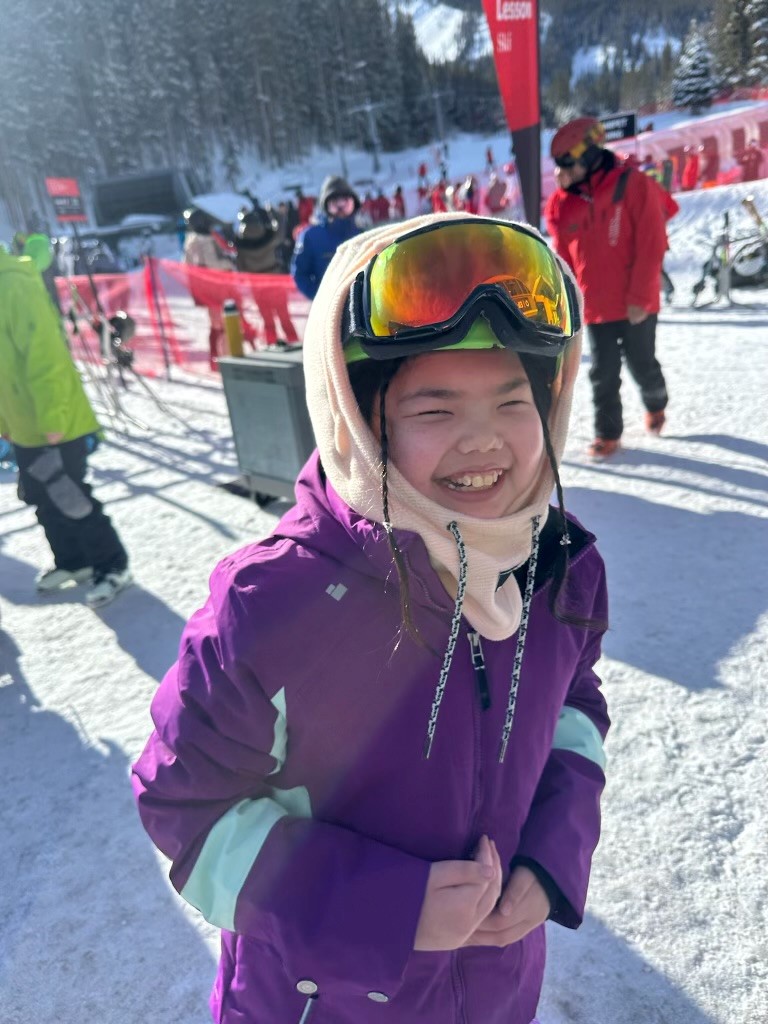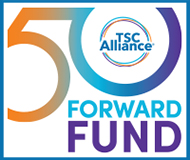
 Stephanie and Tom McCann watched helplessly as their infant daughter, Claire, suffered infantile spasms and seizures, unaware these were signs of tuberous sclerosis complex (TSC). At the hospital, they pushed doctors to take Claire’s case seriously, to perform the full range of tests and scans. At eight months old, Claire was diagnosed with TSC.
Stephanie and Tom McCann watched helplessly as their infant daughter, Claire, suffered infantile spasms and seizures, unaware these were signs of tuberous sclerosis complex (TSC). At the hospital, they pushed doctors to take Claire’s case seriously, to perform the full range of tests and scans. At eight months old, Claire was diagnosed with TSC.
Claire has been profoundly affected by the disease, with severe cognitive and developmental delays. After limited success with various medications, Claire began taking Afinitor, a treatment for tumors associated with TSC that was developed and approved thanks to the research supported by the TSC Alliance. The effect has been transformational. With her seizures now under control, Claire’s quality of life has improved significantly. “When we look at Claire, we just see the everyday joy she has for living life,” her mother says.
Today, Claire is an energetic 13-year-old, who enjoys music and swimming. The family says they live on “Claire Time,” celebrating incremental accomplishments which might seem minor to others, but to them, are milestones. Claire can recognize her own name. She swims an entire lap unaccompanied, uses modified sign language, and even deejays the family playlist. For the McCanns, “Claire Time,” equals — however long it takes.
Stephanie and Tom share a passion for TSC research, which they hope will lead to earlier diagnosis and intervention. “If we had known that Claire had TSC in utero, it might not have changed the trajectory of her quality of life, but at least we could have had available resources and we would have looked out for the signs of epilepsy and seizures,” Stephanie says.
 The McCanns have contributed generously to the TSC Alliance’s Whole Genome Sequencing (WGS) Project, which is expected to accelerate research on TSC, potentially leading to new therapies and improved outcomes for individuals with the disease. It will provide researchers with a rich dataset to investigate novel genetic factors in TSC, and offer study participants the option to receive their WGS results, along with genetic counseling, to aid in understanding their diagnosis and future decision-making, including family planning.
The McCanns have contributed generously to the TSC Alliance’s Whole Genome Sequencing (WGS) Project, which is expected to accelerate research on TSC, potentially leading to new therapies and improved outcomes for individuals with the disease. It will provide researchers with a rich dataset to investigate novel genetic factors in TSC, and offer study participants the option to receive their WGS results, along with genetic counseling, to aid in understanding their diagnosis and future decision-making, including family planning.
“We believe that understanding the genome, and DNA, is really the foundation of the disease. Everything else can be built upon that,” Stephanie says. “We feel that if our dollars can help create a robust database, it may have transformational benefits – not just for individuals with TSC, but other genetic conditions as well.”
They feel these scientific achievements could not be possible without the TSC Alliance. Painstaking, yet steady progress will inevitably help families affected by TSC. “Supporting research will improve the quality of lives of not only the patients with TSC, but all the caregivers and families and friends around them,” says Tom. “That’s why we’re so passionate about research. We feel like Claire lost out on that initial diagnosis, and I would never want this to happen to another family.”
For the McCanns, the most important thing is not to give up on the pace of TSC research. They believe researchers must be given the time to develop new treatments and eventually a cure — however long it takes.
Help the TSC Alliance accelerate TSC research by donating to the 50 Forward Fund!
